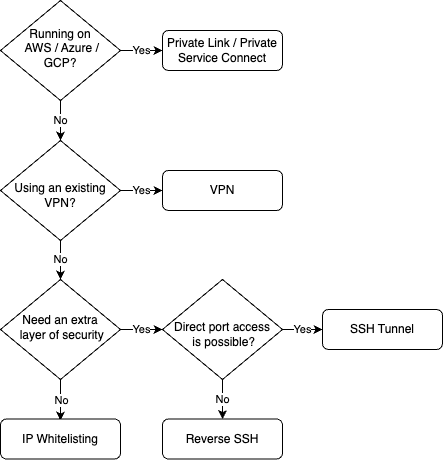Database Connectivity Options
- 1 Minute to read
- Print
- DarkLight
- PDF
Database Connectivity Options
- 1 Minute to read
- Print
- DarkLight
- PDF
Article summary
Did you find this summary helpful?
Thank you for your feedback!
Introduction
This guide provides an overview of the available database connection methods, detailing their respective advantages, limitations, compatibility with Rivery, best practices, and links to in-depth documentation.
Selecting the Optimal Connection Method
To determine the most appropriate database connection method for your use case, consult the Access Methods document, which offers detailed explanations and guidance.

Was this article helpful?

